More than 100 members of South Australia’s Cypriot and Greek communities gathered on Sunday, July 18 at the Cyprus Community centre of SA in Welland, Adelaide to commemorate the 47th Anniversary of the Turkish Invasion of Cyprus and honour those who fought for freedom.
The event, organised by the Cyprus Community of SA and Justice for Cyprus (SEKA SA) started with a memorial service at the Parish of St George in Thebarton followed by a wreath laying ceremony and speeches.
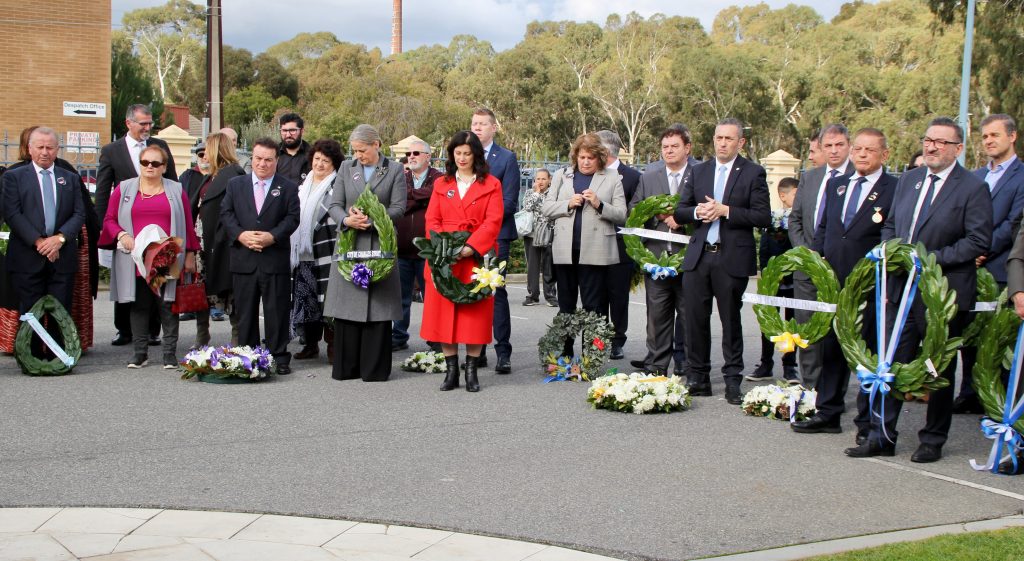
Present were, federal, state, community and religious leaders among them: David Pisoni MP, Minister for Industry and Skills representing the Premier Steven Marshall; Tom Koutsantonis MP, representing the Leader for the Opposition Peter Malinauskas; Federal Member for Adelaide, Steve Georganas; Consul General of Greece in Adelaide, George Psiachas; Labor MLC Irene Pnevmatikos; SA BEST MLC Frank Pangallo; Andrea Michaels MP, Member for Enfield; Mayor of the City of Charles Sturt, Angela Evans, Mayor of the City of West Torrens Michael Coxon, President of SAMEAC, Andriana Christopoulos; His Grace Bishop Silouan of Sinope, Fr Diogenis Patsouris and President of the Greek Orthodox Community of SA, Bill Gonis.
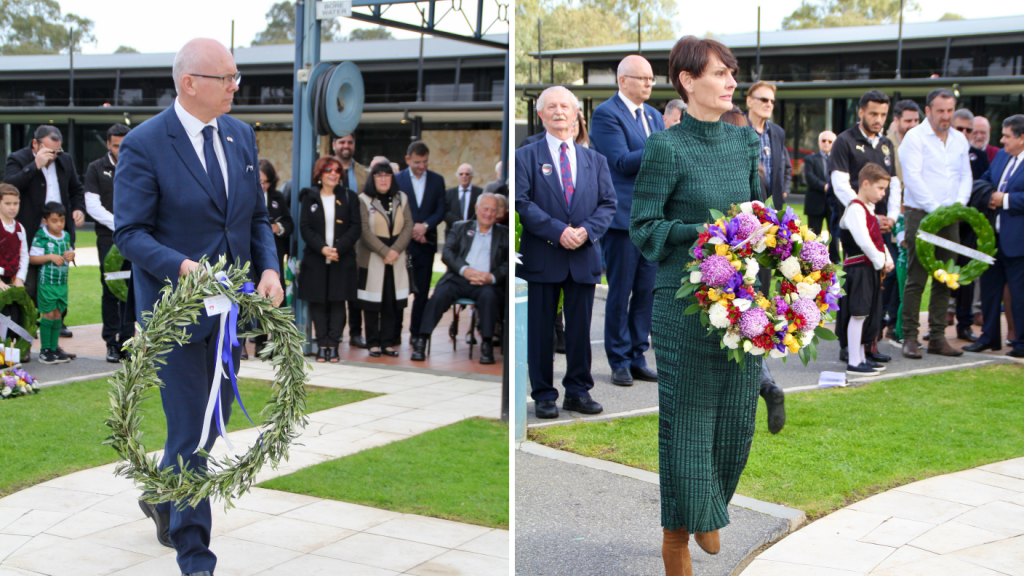
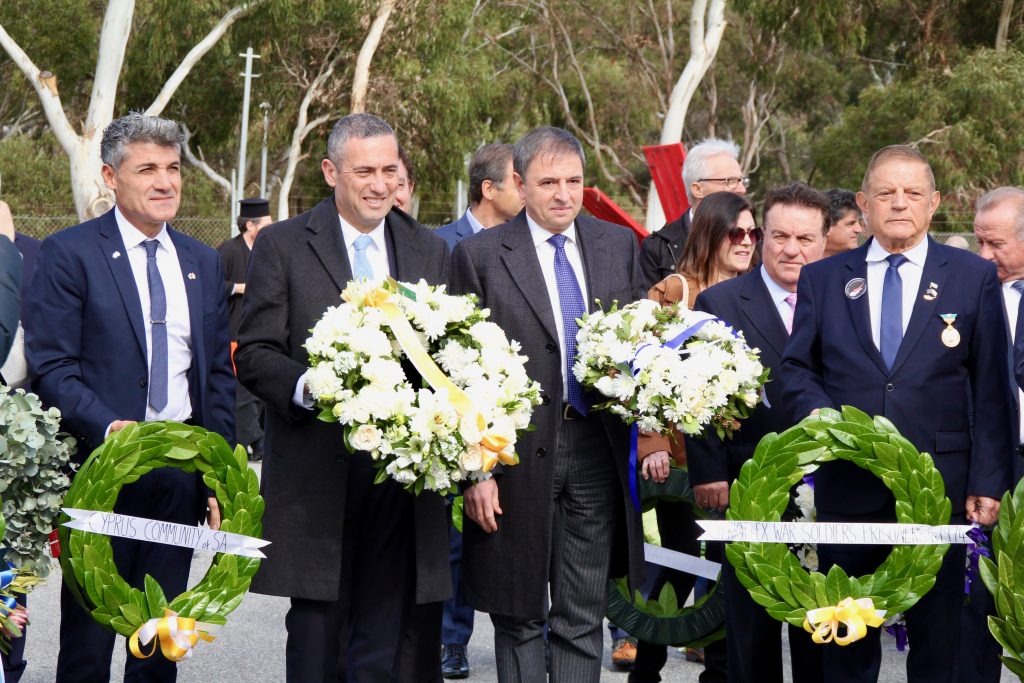
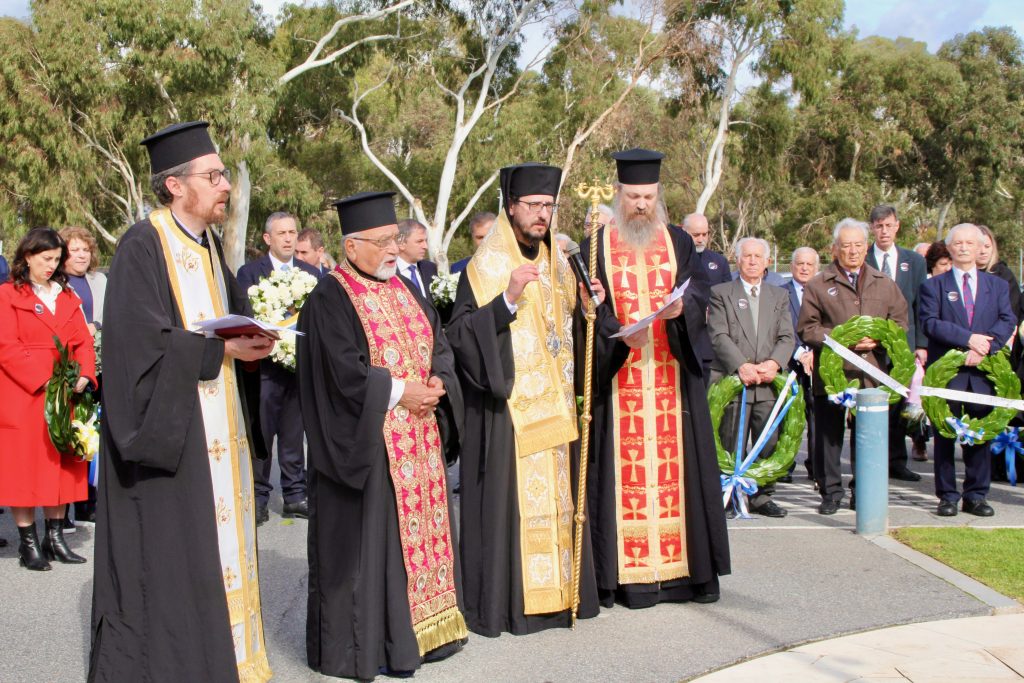
“We call on the Australian and the international community to urge President Tayip Erdogan to stay in his country and in a move of good will to withdraw the Turkish troops from Cyprus and allow the Greek Cypriots and Turkish Cypriots to be reunited under a bizonal, bicommunal federal government in accordance with the UN resolution” said SEKA SA President Peter Ppiros in his opening speech.

Referring to the latest developments regarding Turkey’s decision to re-open the Varosha beachfront Cyprus Community of SA, Prof. Andreas Evdokiou characterised it as an “aggressive act by the Turkish government which comes in controversy with multiple UN resolutions that demand the preservation of Varosha for the people of Cyprus.”
“This is the most dangerous development to date with the potential to permanently derail any future negotiations for a feasible solution.
“We must remain committed to the objectives of a solution we seek. A solution that will terminate the occupation and colonisation based on UN resolutions, high level agreements and based on International and European law,” Prof Evdokiou said in his emotionally charged speech.
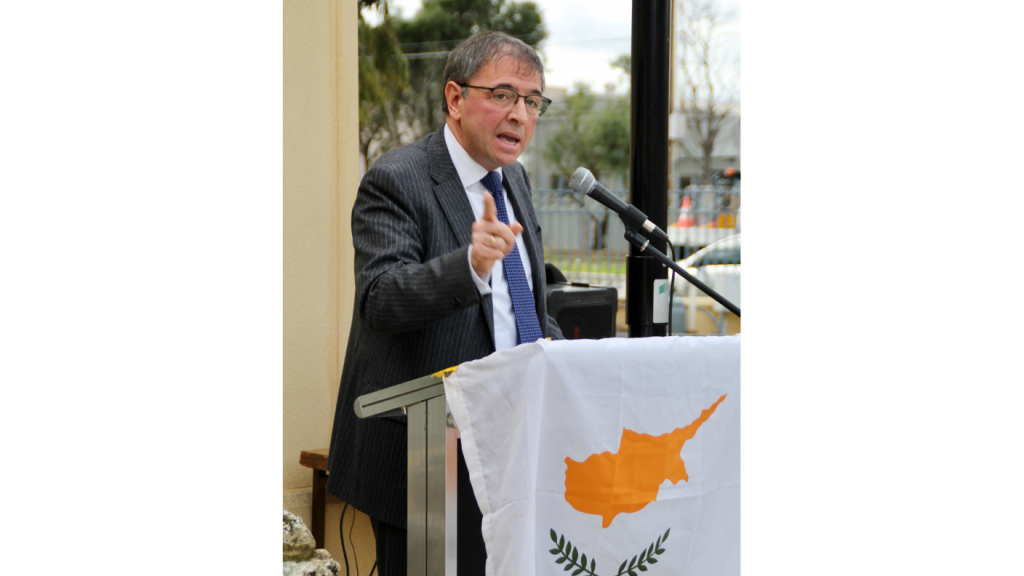
The Consul General, Mr George Psiachas, spoke about the distraction caused by the invasion and explained why Cyprus is on the right side of history.
“Who is the winner of the situation today? The Republic of Cyprus has managed, nevertheless, to become a full member of the EU because of its stands/stance foreign negotiations with the aggressor and the oppressor. On the other hand, Turkey is still striving to become a member of the EU.
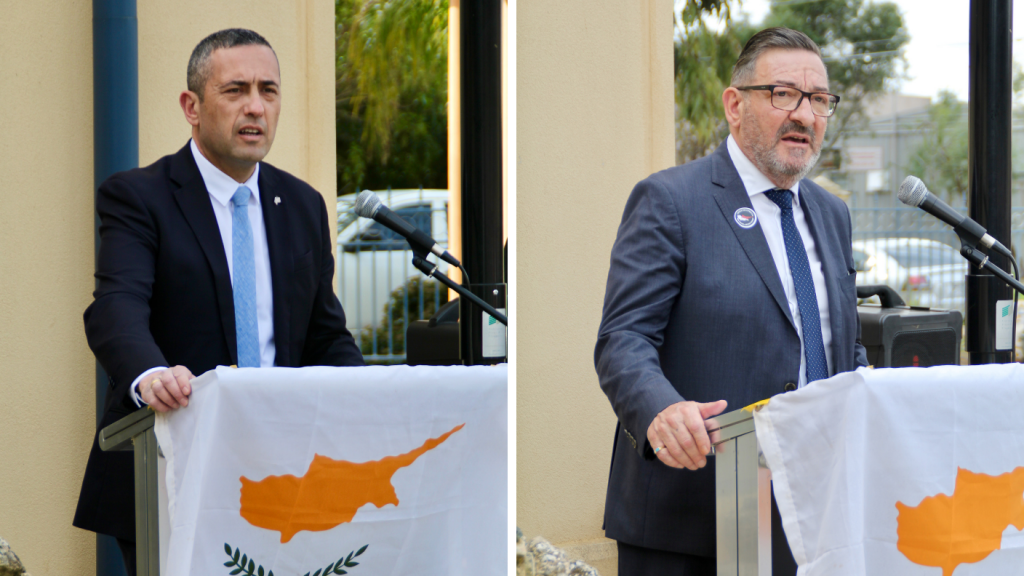
Speeches were also given by Minister Pisoni, Greek Australian politicians Tom Koutsantonis, Steve Georganas and Mayor Evans. Irene Pnevmatikos, Andrea Michaels and SAMEAC President, Ms Christopoulos reiterated that “We Should Not Forget”.
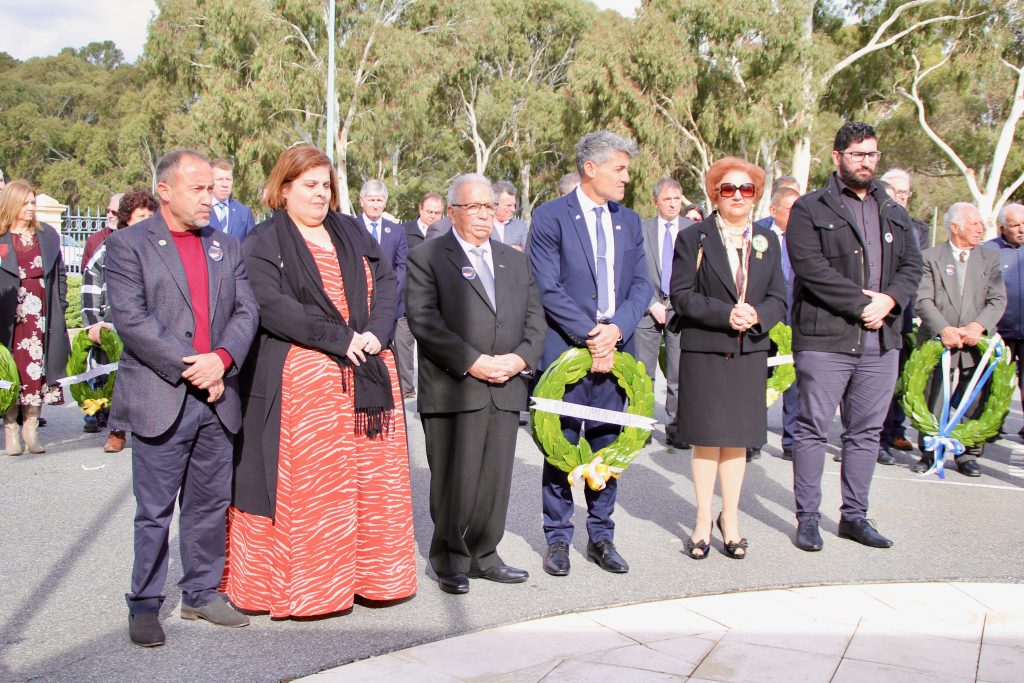
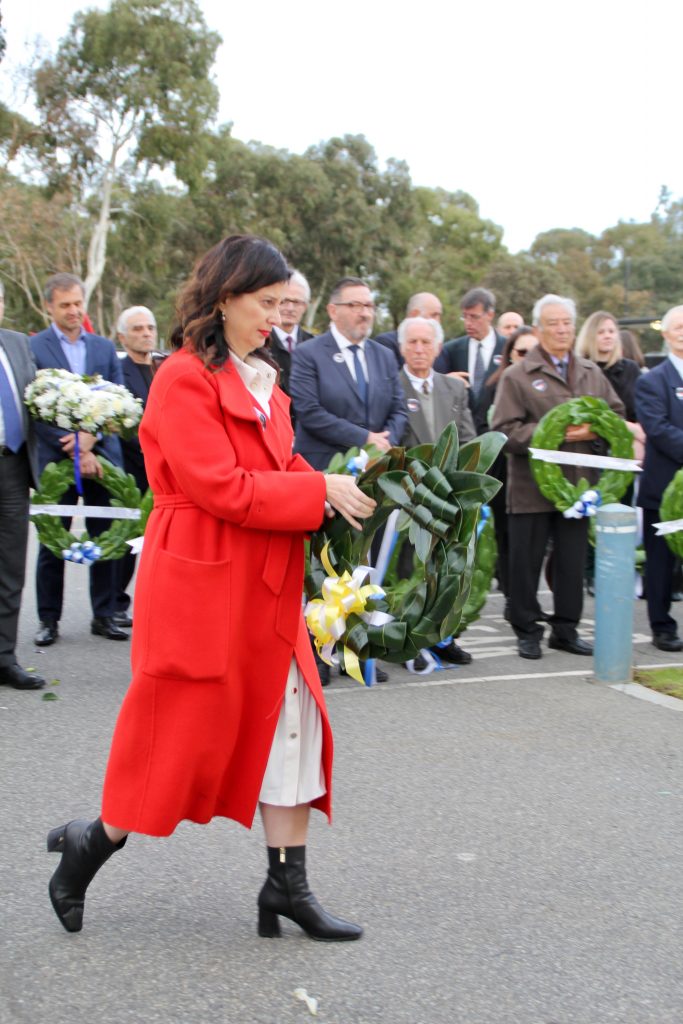

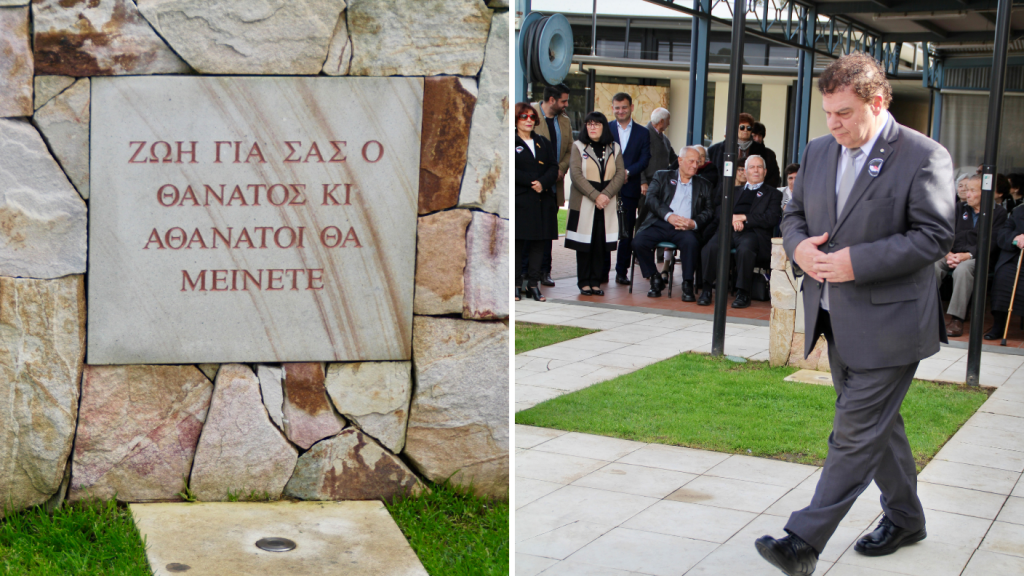
The wreath laying ceremony concluded with the national anthems of Australia and Greece and later on the attendees were treated to light refreshments and snacks.
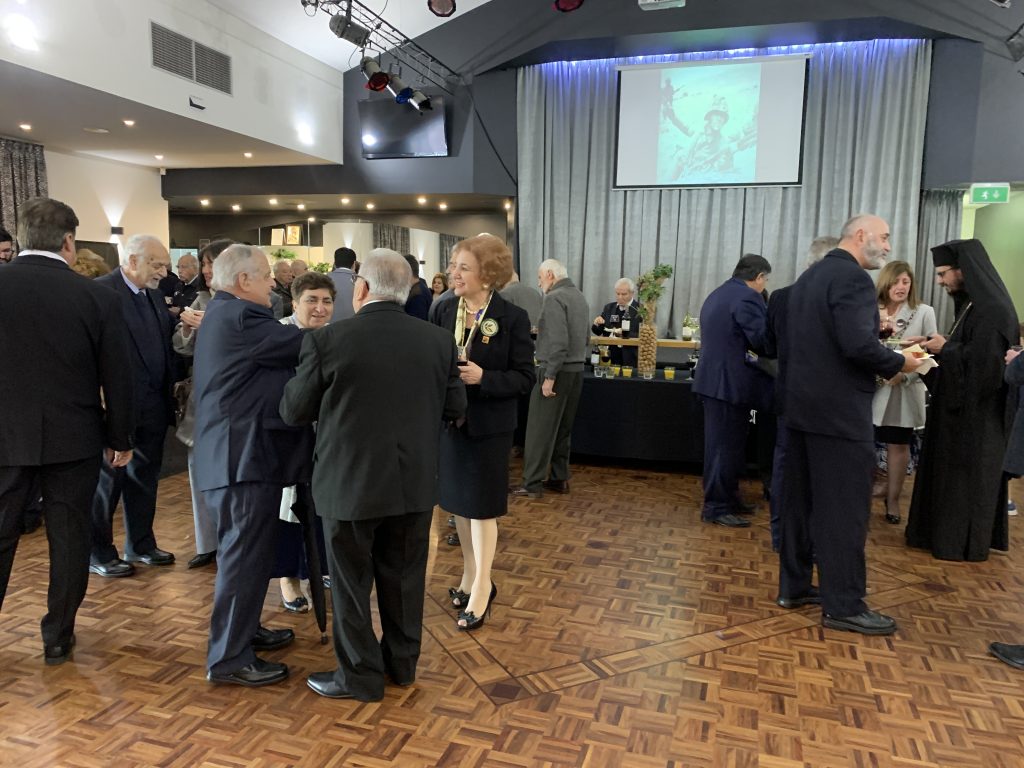
The Invasion through the eyes of Kyrenian Erricos Neophytou
Somewhere in the crowd stands 81-year-old Erricos Neophytou a proud Kyrenian and Adelaide resident for the last four decades.
When Turkey invaded Cyprus on Saturday, 20 July 1974, Mr Neophytou was 34, living with his wife, Celia and 12-months-old daughter in a three-story house in the city of Kyrenia.
“We woke up by the sounds of the bombs. I went up to the last storey where I had a clear view of the ocean and I saw 4-5 ships,” Mr Neophytou tells The Greek Herald.
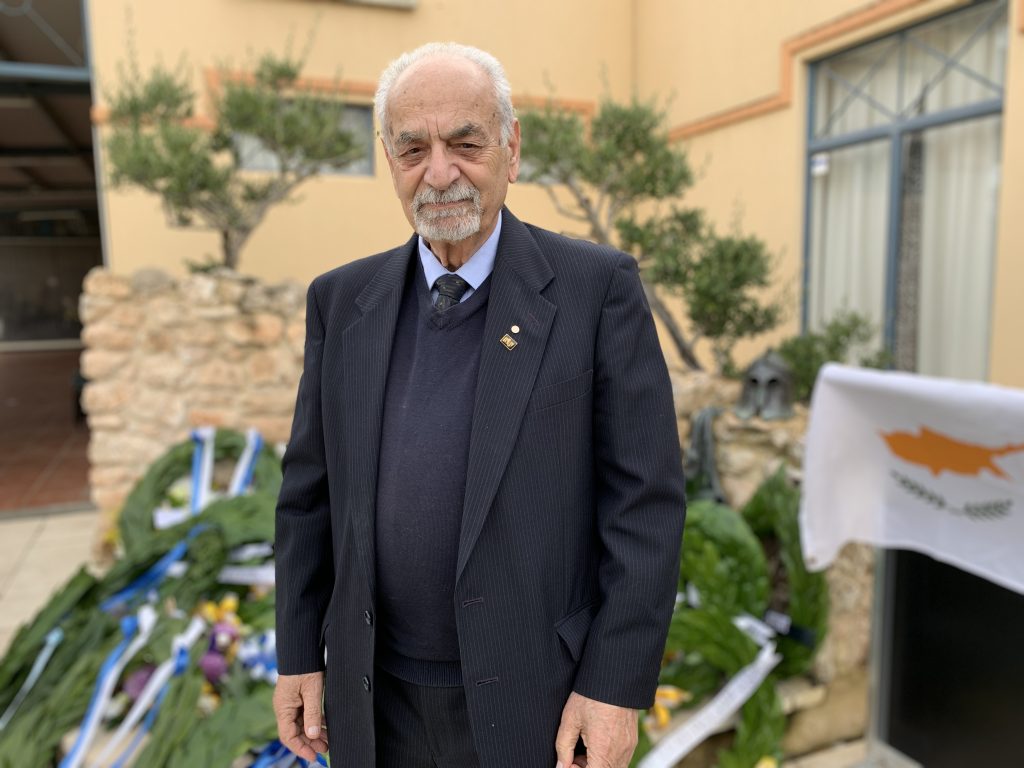
“I was at the age where I could serve in the army so I went to the nearest police station to make myself available to defend the country. They told me to go back to my family because there were no guns.”
Mr Neophytou went back home. In the meantime, the matron of the Red Cross School for kids with disabilities, back then based in the outskirts of Kyrenia, was a close friend of his wife and called her to go to the organisation’s premises where they would be more secure.
“My wife had her robe on and my daughter only the nappy she was wearing. My mother used to live 500 metres away from us. I took them all to Red Cross.”
Celia and the baby where some of the first people who were transported to the port of Akrotiri aboard British naval ship HMS Hermes and from there to London on a C-130 Hercules.
On July 23, 1974 young Erricos decided to leave Kyrenia and head to Nicosia.
“I started walking towards the East. I stopped at my father’s grave first and managed to get through Nicosia.”
In October 1974 Mr Neophytou went to England and reunited with his family but the memories are still alive.
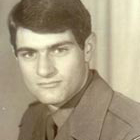
“I was a coach with PAEK (ΠΑΕΚ), the local basketball team and I know many young people who died, one of them was Christos Karefyllides (Χρίστος Καρεφυλλίδης). He was one of the first victims in town,” Mr Neophytou says, holding backs his tears.
In 1978 he migrated to Australia with his family. But he never forgot his home country or the house that he used to live in, that became the Turkish Army Headquarters during the invasion.
“We need to remember and keep remembering. It’s in our blood. Cyprus is our home,” he concludes as he stands proudly in front of the laid wreaths for a photo.

